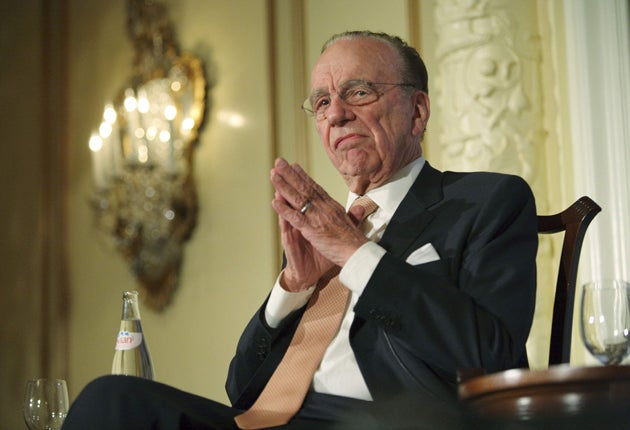New media bends to old over paid-for access

Rupert Murdoch and his henchmen have repeatedly bad-mouthed Google as a “tech tapeworm” and a “parasite”, guilty of “false gospel” and, according to the media mogul himself this week, “theft”. That war of attrition is starting to have an effect.
After the drip, drip of abuse, Josh Cohen, Google’s senior business product manager, has announced a change in policy that will do something towards closing a loophole that threatened Murdoch’s plans to charge for the online content of his newspapers, including The Times and The Sun.
Google said it will allow publishers to limit the number of free news pages users can access per day. The change means that Google News will become less effective as a back door way of reading news articles produced by websites that normally require a subscription.
Internet users have found that by repeatedly using Google’s “First Click Free” feature they could continue to sample content that news providers wished to charge for. Under the new arrangement, users of the aggregator will be redirected to a payment screen after accessing five articles from the same publisher on the same day.
The gesture by Google comes in the wake of reports that Murdoch has been in discussions to make the content of his publications only available through Microsoft’s rival, though infant, search engine Bing. The News Corporation chairman and chief executive increased the pressure on Tuesday by telling a conference in Washington: “To aggregate stories is not fair use. To be impolite, it is theft.”
But Cohen argued that some publishers might benefit from having a hybrid of free and paid-for content available on Google News. “The two aren’t mutually exclusive,” he wrote on a blog. “If you're a Google user, this means that you may start to see a registration page after you've clicked through to more than five articles on the website of a publisher using First Click Free in a day ... while allowing publishers to focus on potential subscribers who are accessing a lot of their content on a regular basis.”
This is just one step in what will be a long and difficult period of negotiation between News Corp and the aggregators, a process that will gather pace ahead of the planned introduction of charging for Internet access to The Times and The Sunday Times, which will decouple online in the spring and erect a pay barrier.
Sources at News International, the News Corp division that oversees Murdoch’s British newspaper titles, view Google’s concession as having little value, except as an apparent indication that the search engine recognises there are problems with the current system. “They’re still dictating the business model and failing to grasp that when you deal with commercial partners it is on terms that are mutually rewarding,” said one executive. “That said, it’s the first time there has been some sort of recognition of the damage that their unrestricted use of content might be having.”
News media businesses are desperately wrestling with the problem of trying to make money from the online provision of often expensively-produced content. Murdoch’s Wall Street Journal is one of only a few newspapers that charges for online content, and has accrued 1m subscribers. But News Corp suffered a £2 billion loss in the year to June.
One of Britain’s largest regional newspaper companies, Johnston Press has this week decided to introduce charging for access to some of its sites, including those of the Northumberland Gazette and the Worksop Guardian. John Fry, the company’s chief executive, said that Google’s initiative would be of limited value in enforcing his pay walls. “Restructuring to five [articles] a day doesn’t really resolve the issue of Google News,” he said. “The good news is that Google have recognised there is an issue and have started to think of ways of dealing with it. I suspect that matters being highlighted by people in the newspaper industry have helped to make this progress.”
* Some internet users had found they were able to circumvent the barriers around subscription-only news sites by exploiting a “First Click Free” feature that gave them access to the content. This feature was introduced by Google partly to prevent the practice of “cloaking”, whereby a website uses one form of content to allow it to be indexed by the search engine but then offers the user different content, such as a payment page or spam, including porn. Under the new Google system, users would be able to access only five articles per day from a subscription-charging publisher, before being redirected to the payment page. Though a minor concession, the gesture itself is seen as a significant attempt to placate content publishers.
Join our commenting forum
Join thought-provoking conversations, follow other Independent readers and see their replies
Comments
Bookmark popover
Removed from bookmarks